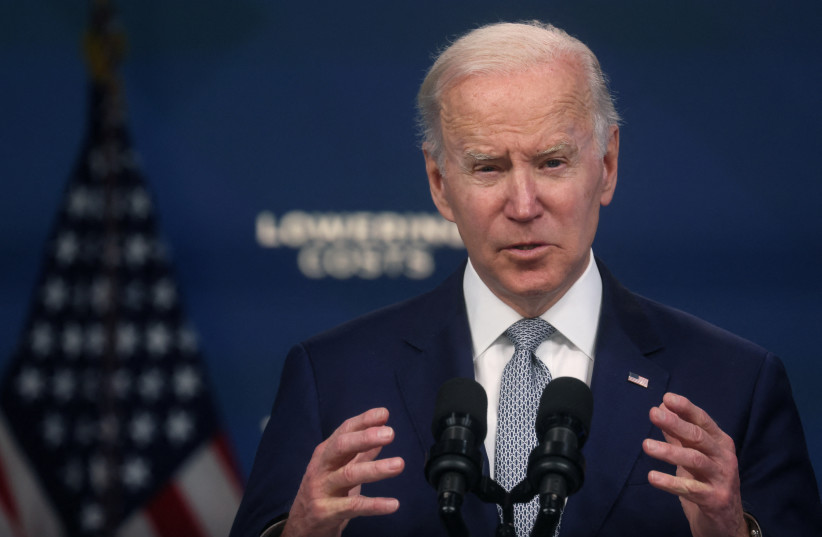The United States will share technologies used to make COVID-19 vaccines through the World Health Organization and is working to expand rapid testing and antiviral treatments for hard-to-reach populations, President Joe Biden said on Thursday.
The US will contribute an additional $200 million to a global health fund for future pandemic preparedness at the World Bank, he said, bringing its total contribution to $450 million.
"We are making available health technologies that are owned by the United States government, including stabilized spike protein that is used in many COVID-19 vaccines," Biden said in his opening speech for the second global COVID-19 summit.
The summit, jointly hosted by the United States, Belize, Germany, Indonesia and Senegal, is being held virtually on Thursday for countries to discuss efforts to end the pandemic and prepare for future health threats.
It is set to build on efforts and commitments made at the first global summit in September, including getting more people vaccinated, sending tests and treatments to highest-risk populations, expanding protections to health-care workers, and generating financing for pandemic preparedness.

At least 14 other countries - Canada, Colombia, India, Italy, Japan, New Zealand, Nigeria, Norway, Palau, Rwanda, South Africa, South Korea, Spain and Tanzania - as well as the World Health Organization, European Commission, private-sector companies like Google GOOGL.O, and non-governmental organizations like the Bill and Melinda Gates Foundation, are attending the summit.
"This summit is an opportunity to renew our efforts, to keep our foot on the gas when it comes to getting this pandemic under control and preventing future health crises," Biden said.
He called on world leaders to consider how their countries could contribute further to the global pandemic response.
"That is why I continue to call on Congress here at home to take the urgent action to provide emergency COVID-19 funding that is vital to make sure that we maintain our supplies of COVID-19 test, treatments, and vaccines, including next generation vaccines that are being developed," he said.
"The request also includes $5 million to keep up our global partnership in the fight against COVID-19, to sustain our efforts to get shots in people's arms all around the world."
Biden has asked Congress for over $22.5 billion in additional COVID-19 response funds, including $5 billion for international aid, but lawmakers have failed to pass any funding bill and those negotiating the package have been unable to agree on how to pay for the global response.
The United States has delivered over 500 million doses of vaccines to over 100 countries as part of the 1.2 billion doses it pledged at the first summit in September and has already committed over $19 billion in funding for vaccines, tests, treatments, and other forms of assistance, Biden said.
It also helped raise over $3.1 billion in commitments to the international pandemic response ahead of the summit, a senior Biden administration official said.
"There is still so much left to do. This pandemic isn't over," said Biden. "Today, we mark a tragic milestone here in the United States, 1 million COVID deaths, 1 million empty chairs around a family dinner table. Each irreplaceable."
US says has no current plans to share COVID-19 vaccines with North Korea
The United States has no current plans to share vaccines with North Korea, a spokesperson for the White House National Security Council said on Thursday, after Pyongyang reported its first COVID-19 outbreak.
The spokesperson said North Korea had repeatedly refused vaccine donations from the COVAX global vaccine sharing project, and added, referring to the country by the initials of its official name:
"While the US does not currently have plans to share vaccines with the DPRK, we continue to support international efforts aimed at the provision of critical humanitarian aid to the most vulnerable North Koreans."
The first public admission of COVID infections by North Korea highlights the potential for a major crisis in a country that lacks medical resources, has refused international help with vaccinations and kept its borders shut.
